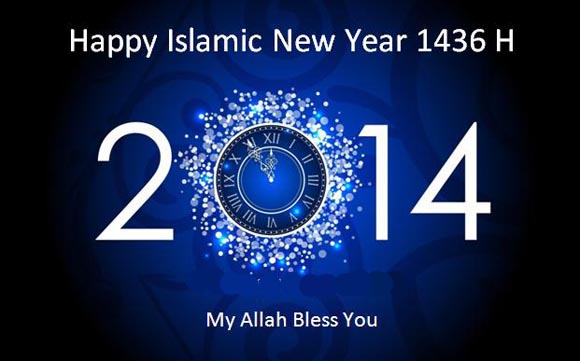Mumbai: Muslims around the world are gearing up to welcome the new Islamic Hijri year 1436, with the first day of the lunar month of Muharram in most of the Arab States, the United States and United Kingdom starting on Saturday, October 25, religious authorities said.

In India, which has the world's third largest Muslim population, and other countries in the sub-continent, the Islamic New Year will begin either on 26 October or a day later - depending on sighting of the new moon.
The difference in the regions is because the Islamic calendar runs on lunar system, and the first day of the new month is decided based on sighting of the moon.
The lunar month of Muharram and consequently the first day of the new Hijri year 1436 will start on Saturday October 25, Egypt's Middle East News Agency (MENA) reported, quoting the National Research Institute of Astronomy and Geophysics (NRIAG) President, Hatem Ouda.
Al-Azhar Grand Imam Ahmad el-Tayeb has greeted the Egyptian people as well as the Arab and Islamic nations on the advent of the new Hijri year 1436.
In his cable, el-Tayeb has called on the Egyptians to put the interest of the homeland above any other considerations.
About 1.57 billion Muslims all over the globe and nearly 64 Muslim Countries in the world are waiting to celebrate their new Hijri year.
The Islamic Calendar was started 1434 years before by the second Caliph Omar ibn Khattab.
Before that Muslims in their respective provinces, following the Arab tradition of the time, were used to count the days and months – with sighting of the new moon and counting the days thereafter without following any particular calendar or dating system.
After the Islamic State spread to beyond Arab land to new areas, the defects in the system began to surface and the need for a better and accurate calendar was felt.
Rehnuma explains, "The Caliph, the Supreme Head of the Islamic State, was used to issue all the Guidelines and Pronouncements to the Governors of various Islamic Provinces from Madinah. Things were actually working fine.
"But confusion arose when contradictory orders started reaching far away provinces at the same time. Since these orders were not carrying any date, it became very difficult for the Governors to find out which one of the orders was the latest and supposed to be followed with".
To overcome the confusion, Caliph Omar finally decided to introduce the Islamic Calendar and asked the people for their opinions and suggestions on the matter. Consequently, various historical events, including the year when the Prophet was born, the year of the Prophethood, the time of Migration and the time when the Prophet had died, were proposed by the people.
"However unanimity surfaced for the year that coincided with the migration of the Prophet (peace be upon him) from Makkah as the commencing year of the Islamic Calendar. For, it was the migration of Prophet Mohammad (Peace be Upon Him) from Makkah to Madinah that had resulted Islam nurturing into the new heights and spreading to the whole Arab lands, and also to the surrounding States", Rehnuma says quoting from the history.
"Moreover", she says, "Moharram al-Haram was also associated with many historical events and the month has always been considered as one among the four most respected and sacred months since centuries. These features only added strength to the selection of Moharram al-Haram as the first month of the Islamic calendar".
The Islamic Calendar thus introduced and adopted some 1435 hundred years ago, soon became popular, and also became part and partial of the calendars in every Muslim household.
 | Quick links
| Quick linksNews
National
International
Regional
Politics
Education & Career
Business
Science & Technology
Health
Views & Analysis
The Funny Side
© 2012 Awaz Multimedia & Publications. All rights reserved.

In the first reaction after winning the assembly election, Imtiyaz Jaleel, the All India Majlis-e-Ittehadul Muslimeen (AIMIM) legislator .... More
Also Read: Owaisi brothers should drop negative tactics, embrace positive approach

The more cautious Europeans have been equally puzzled by the meekness of Indian Muslims. It is not said in so many words but the nuanced suggestion and implication is not lost on anyone.
That at a time when their brethren elsewhere — true to their image.... More

In government and private advertisements, he makes tall claims and shows a long list of 'achievements' during his five-year tenure as minister. To sum it up, he claims his ministry is responsible for the socio-economic and educational empowerment of the.... More

A 25-year-old Saudi girl, who was born during Haj days, died while performing Haj (pilgrimage) in Makkah just an hour after texting her father on his mobile telling him that she wishes to die there. A 25-year-old Saudi girl, who was born during Haj days, died while .... More









